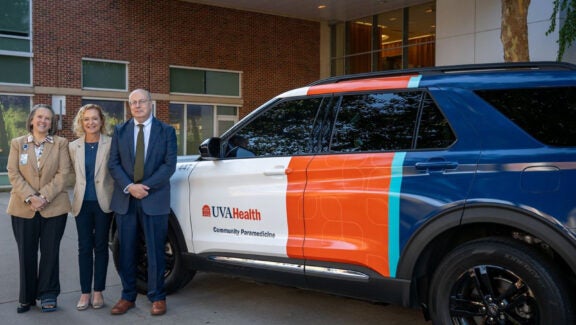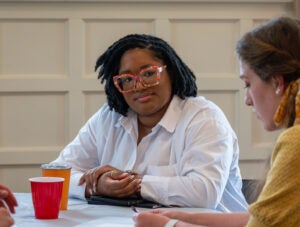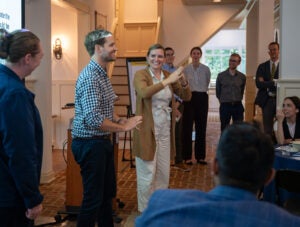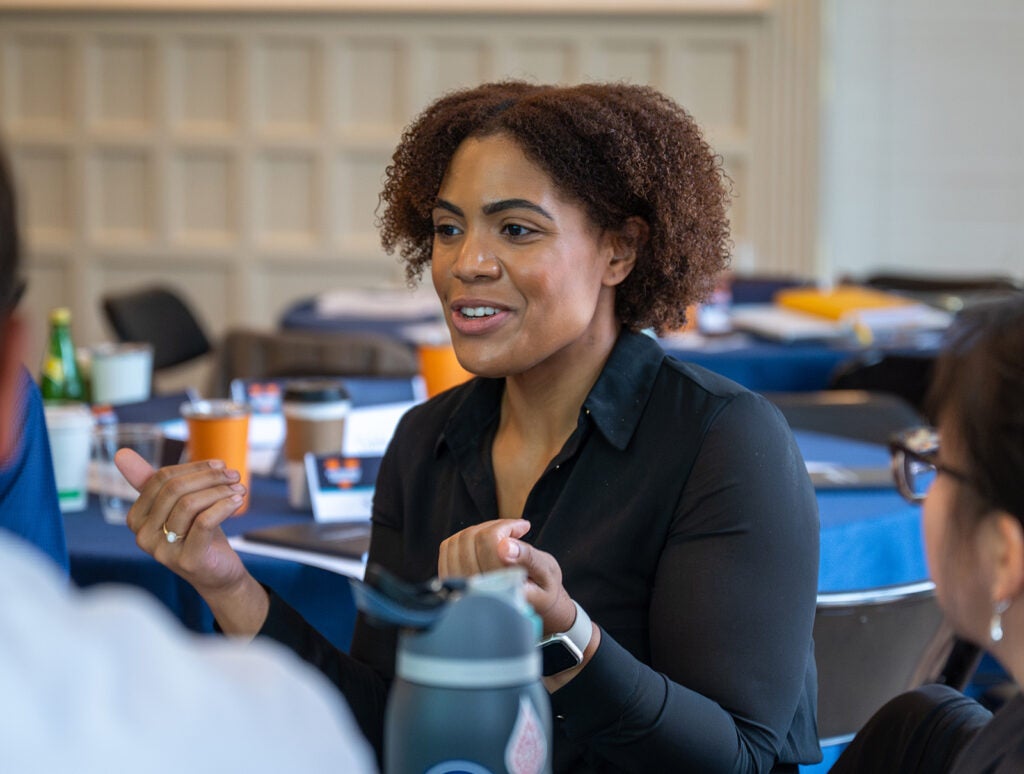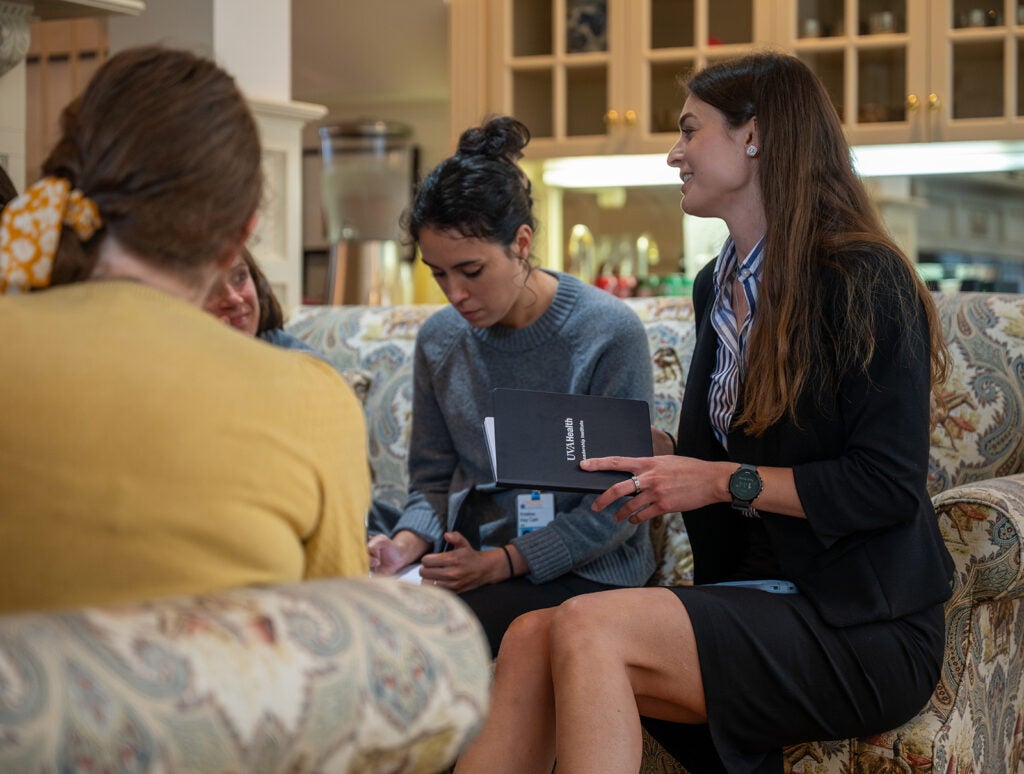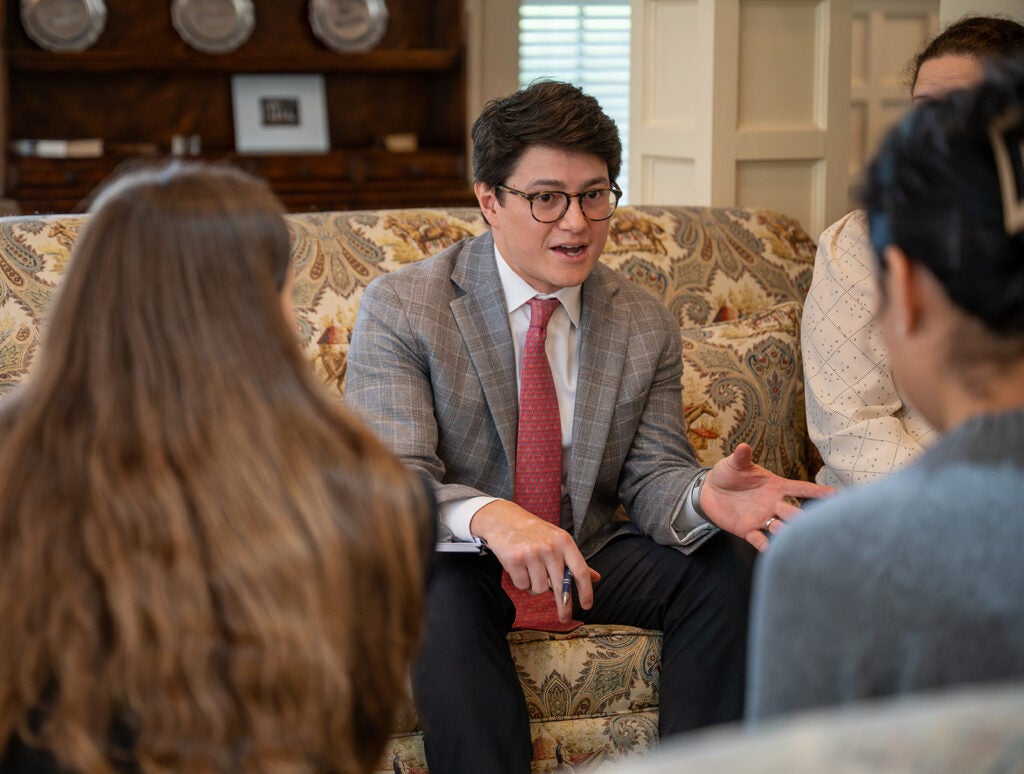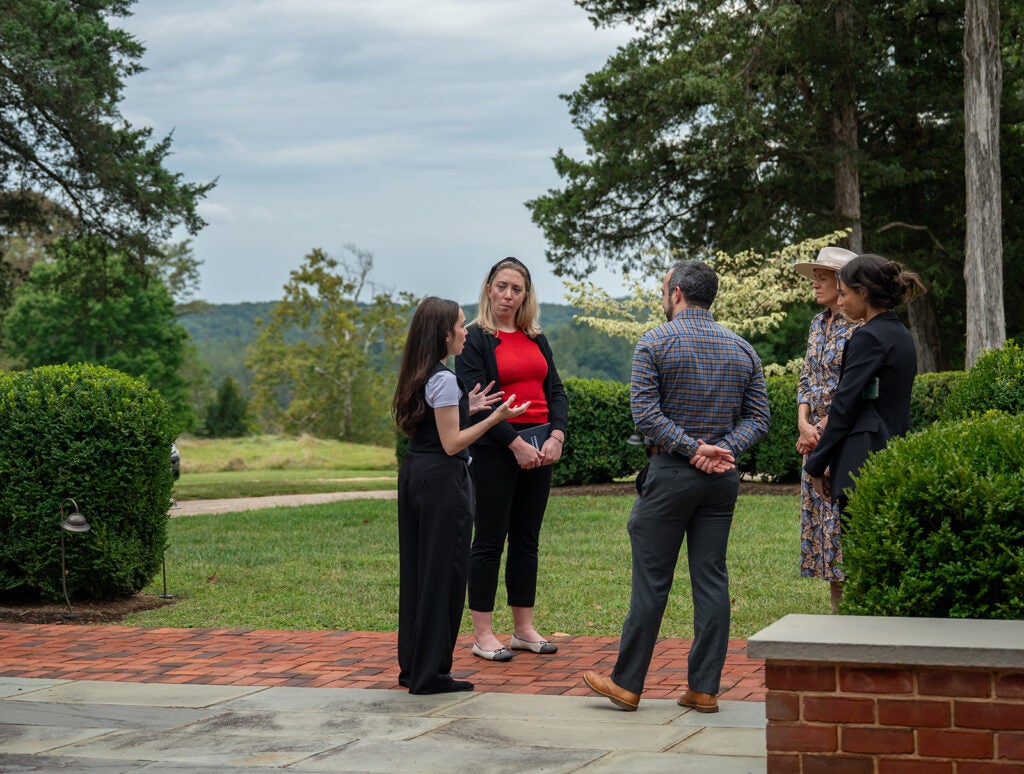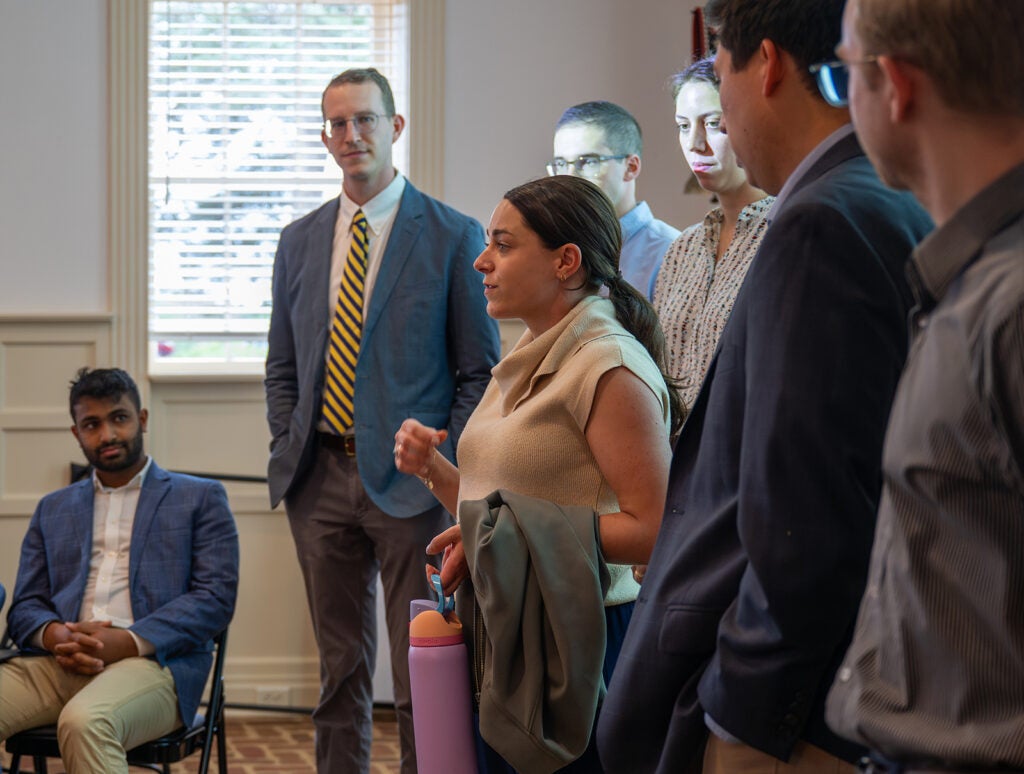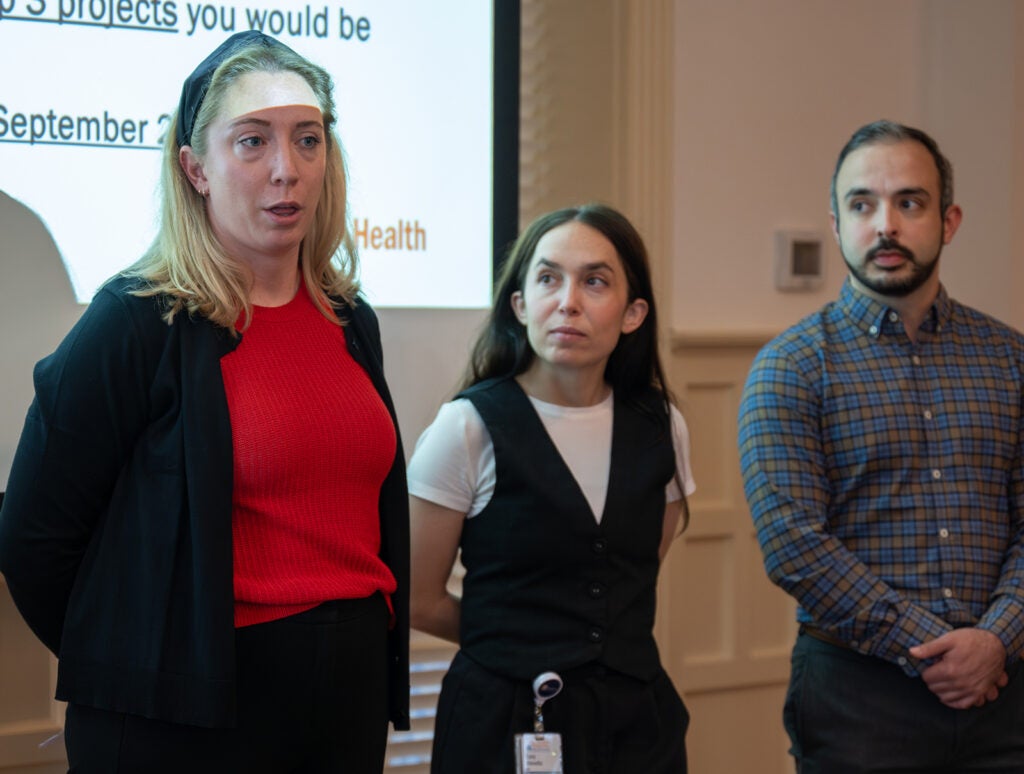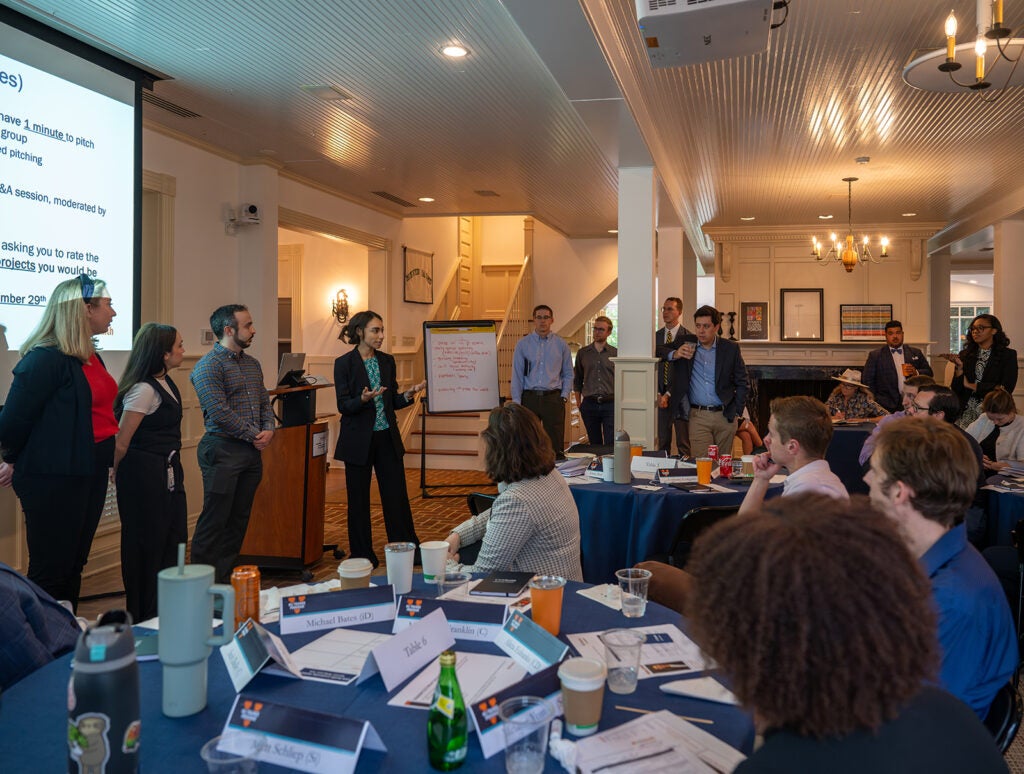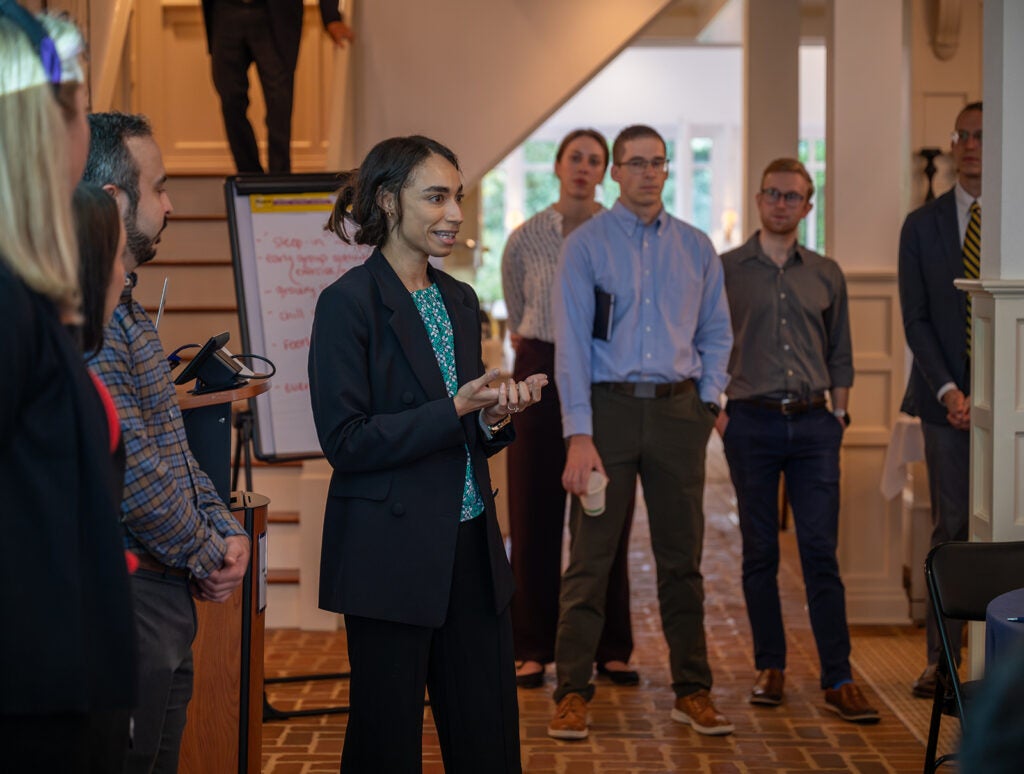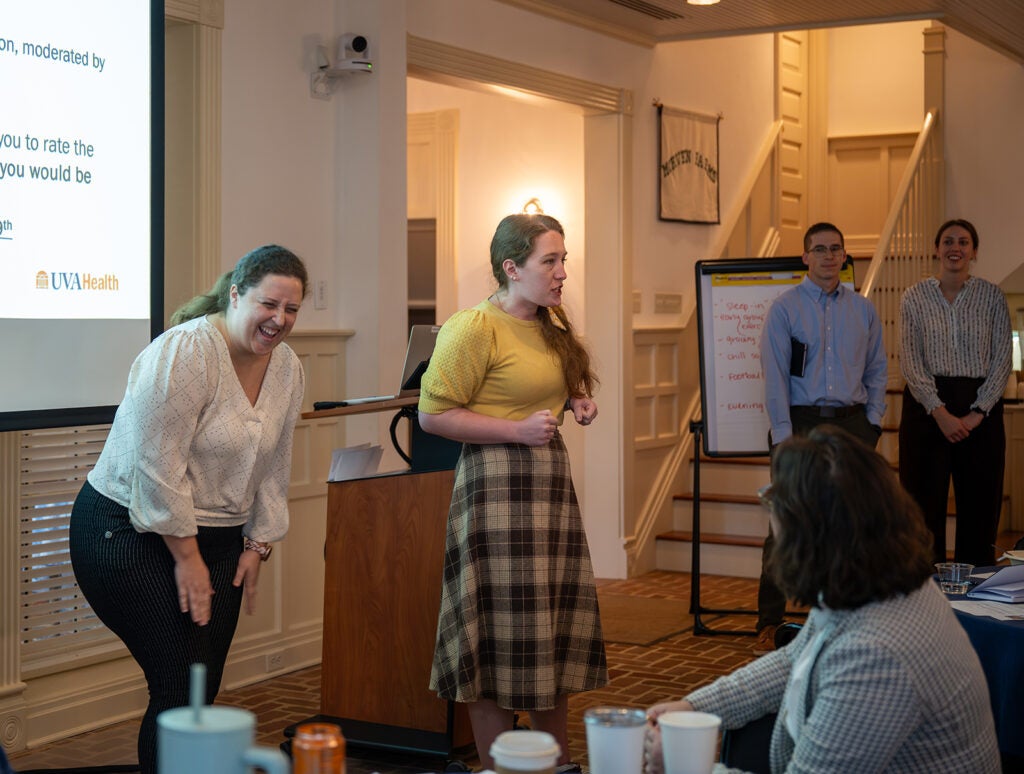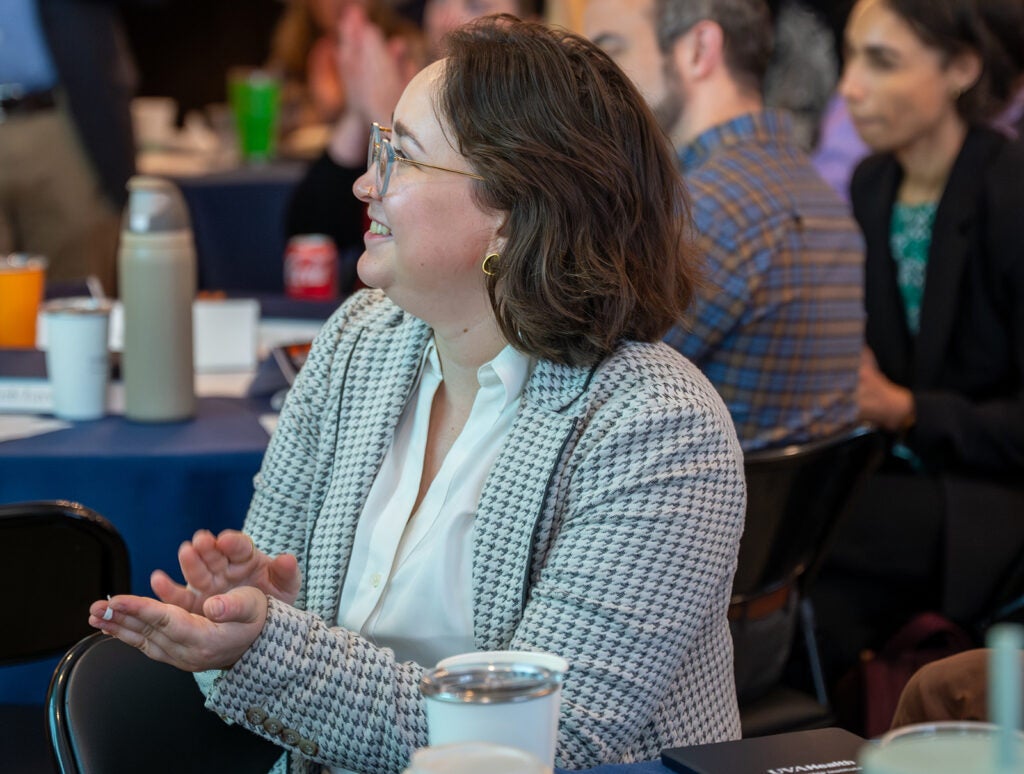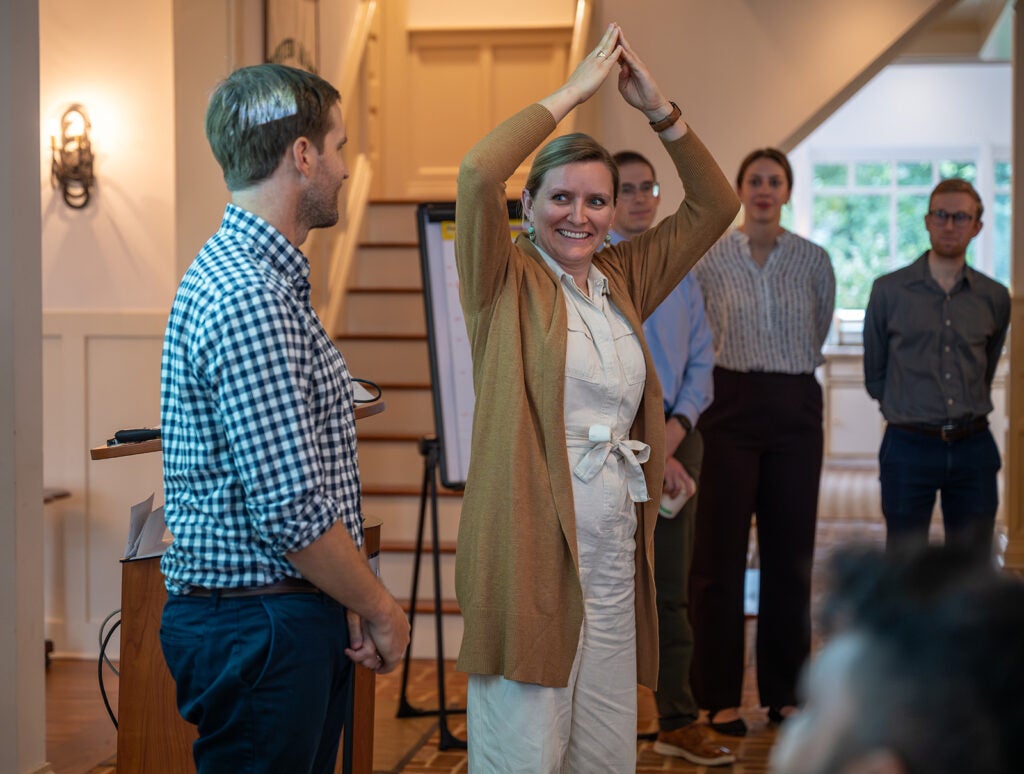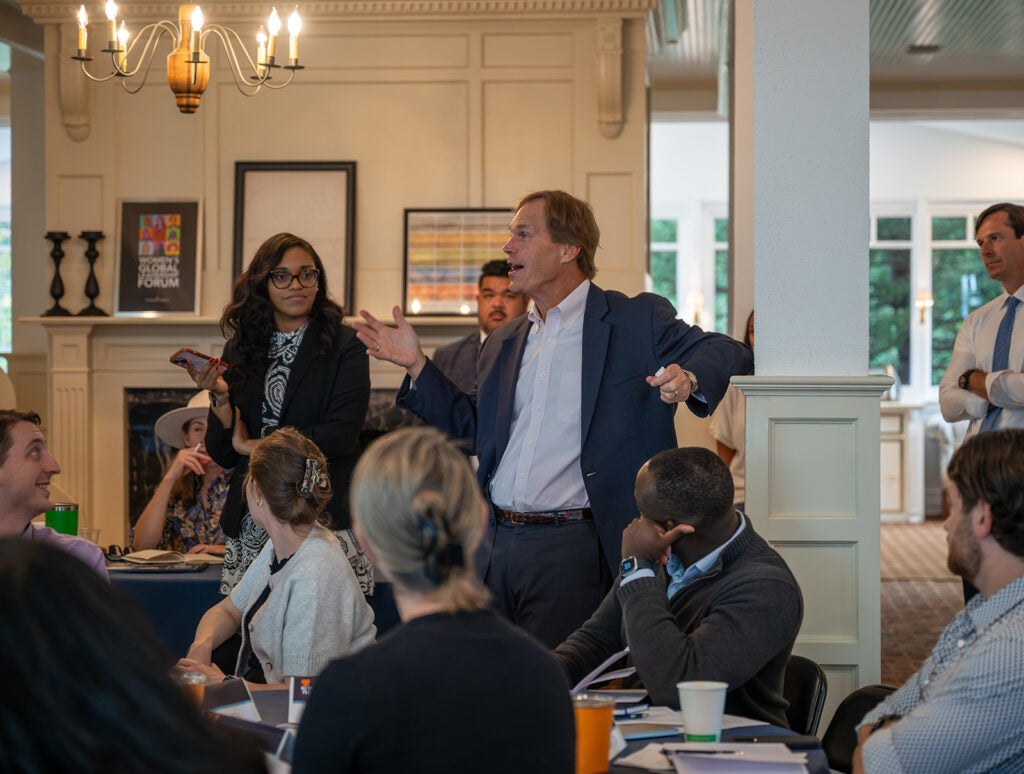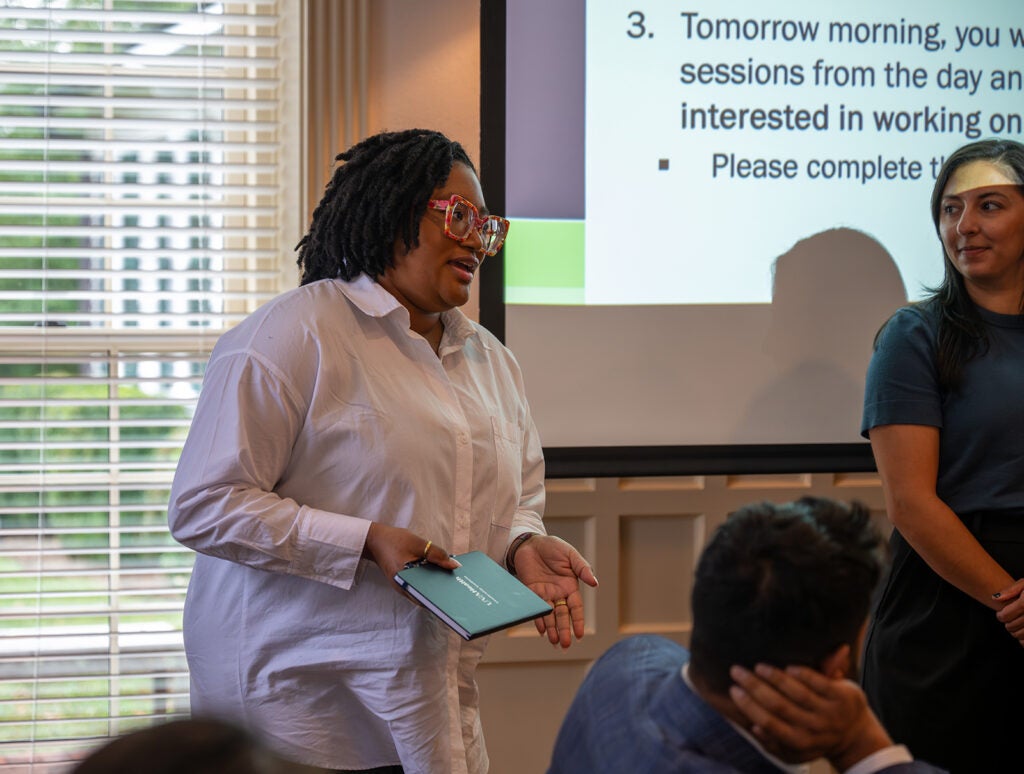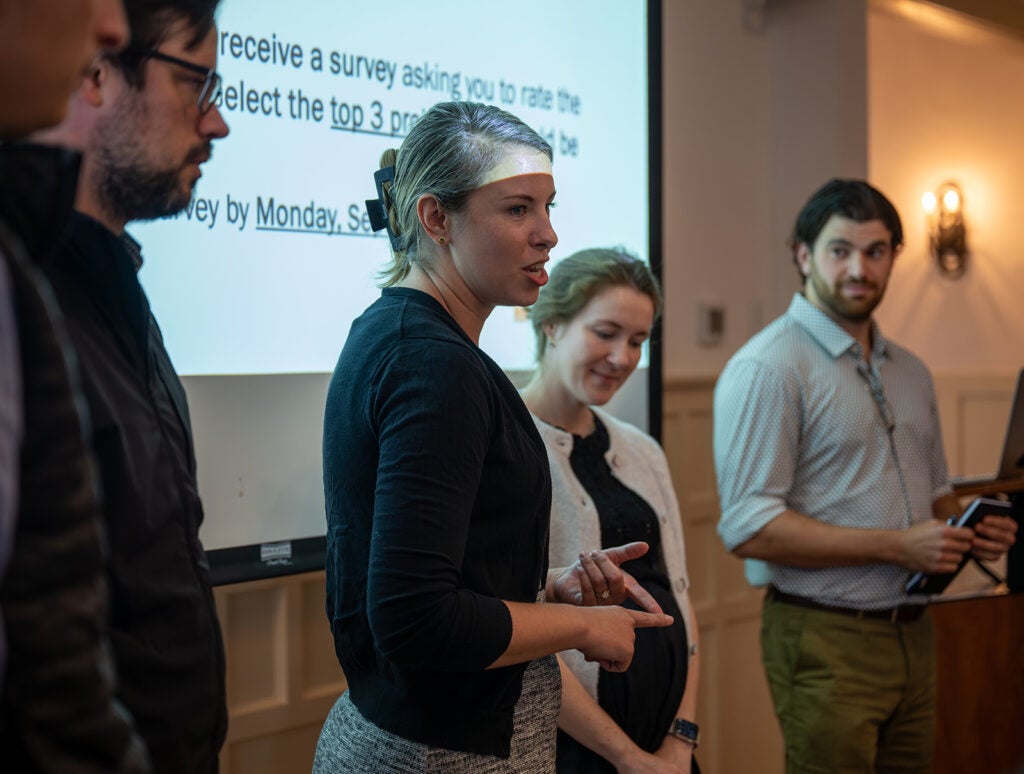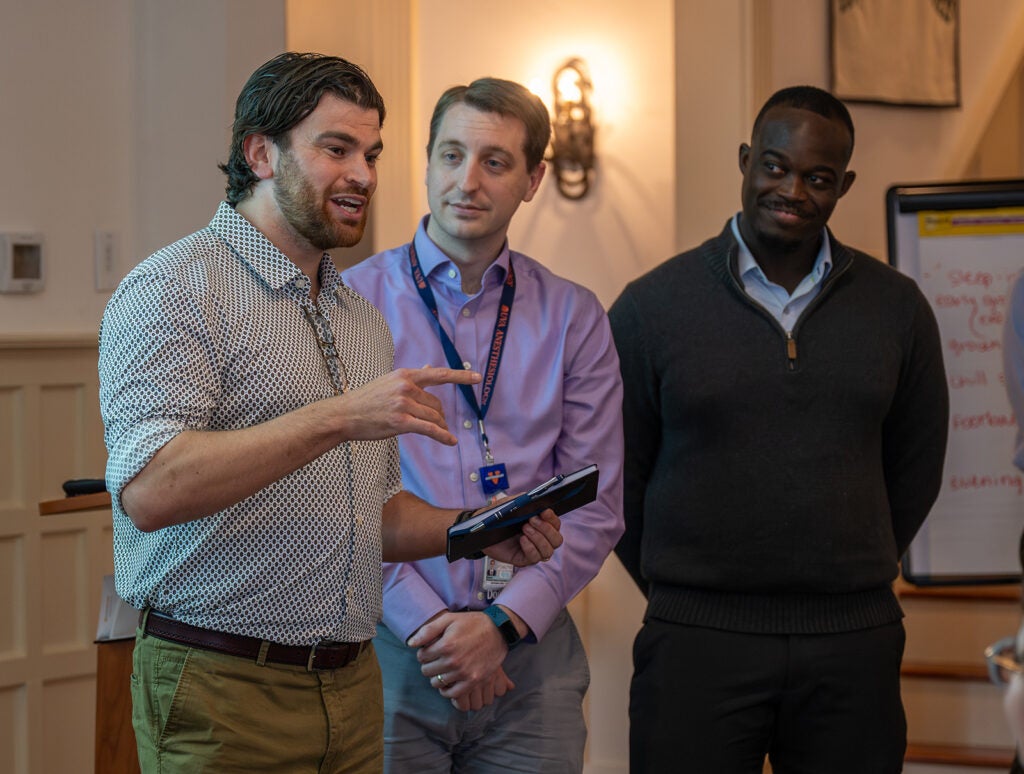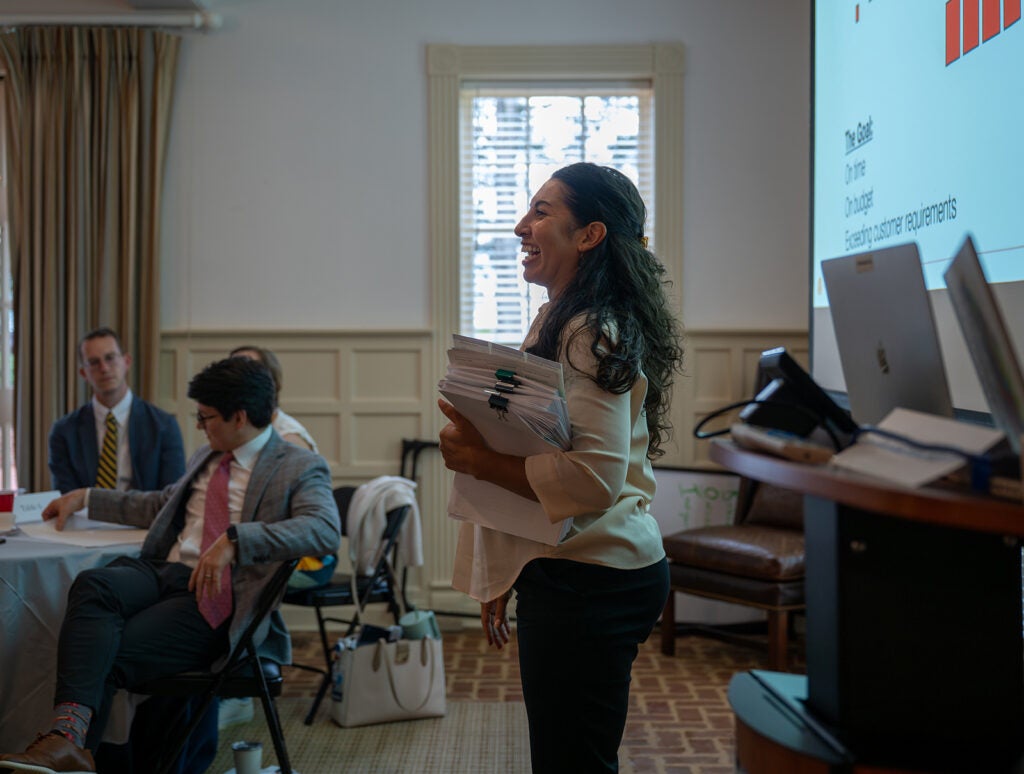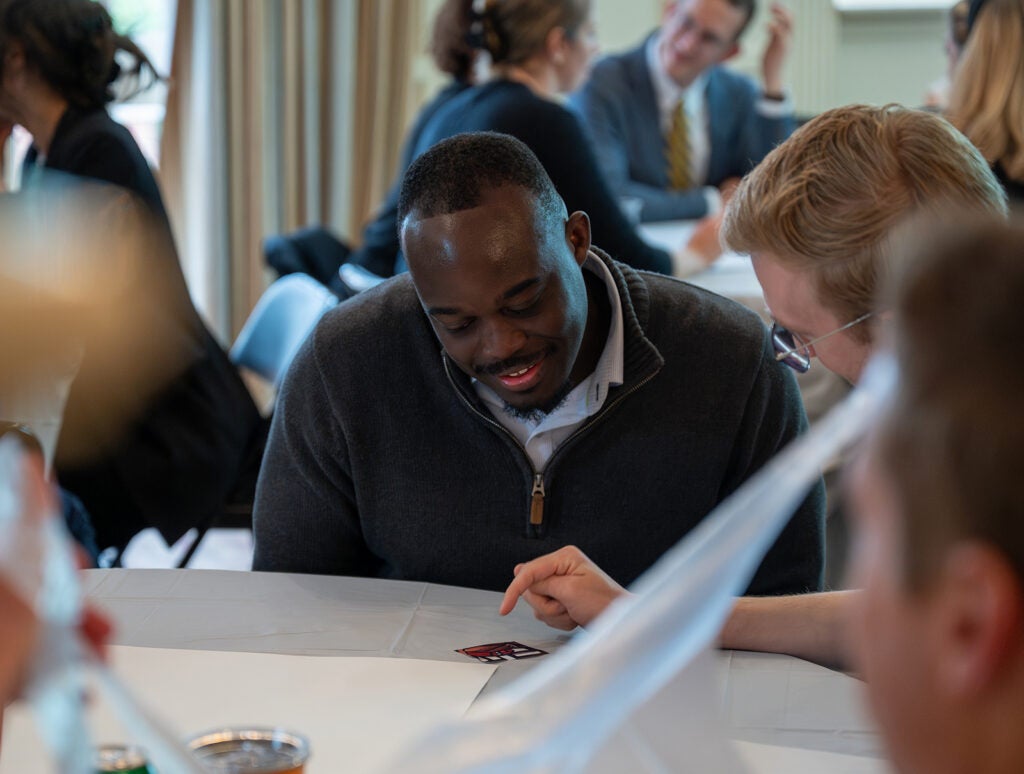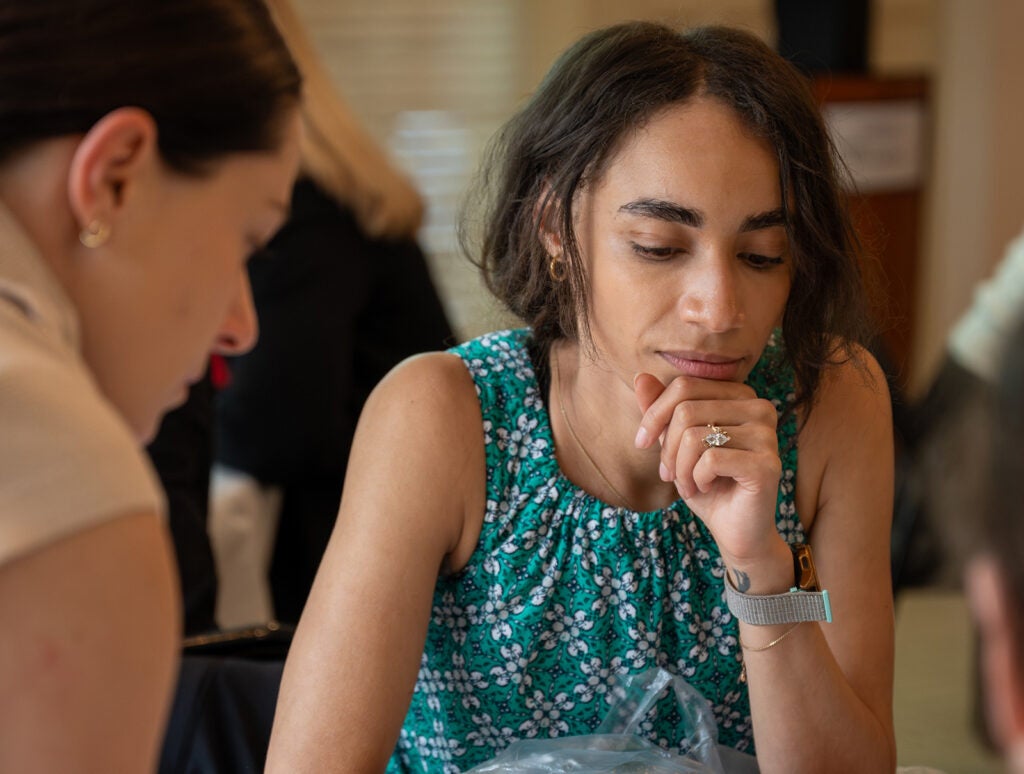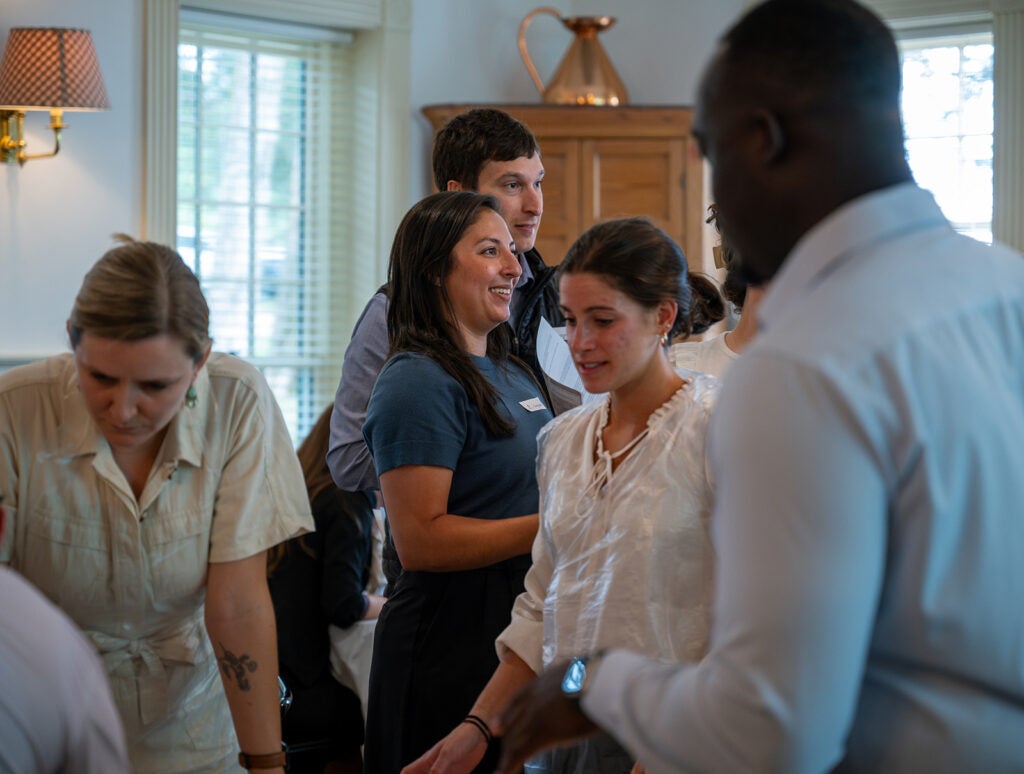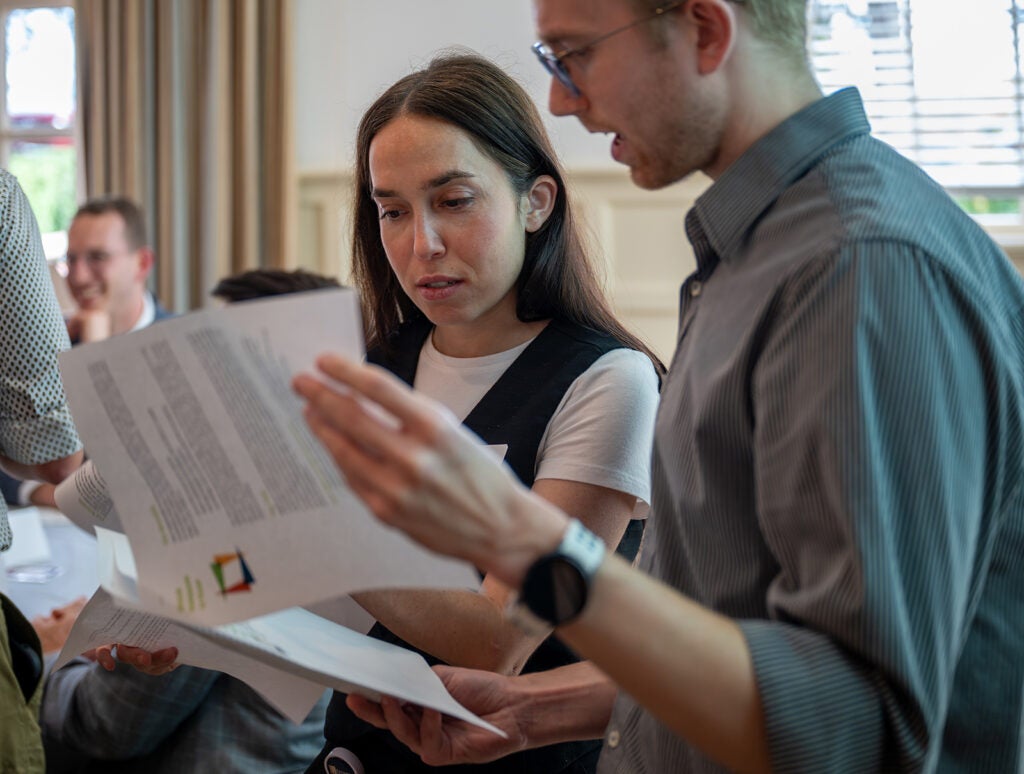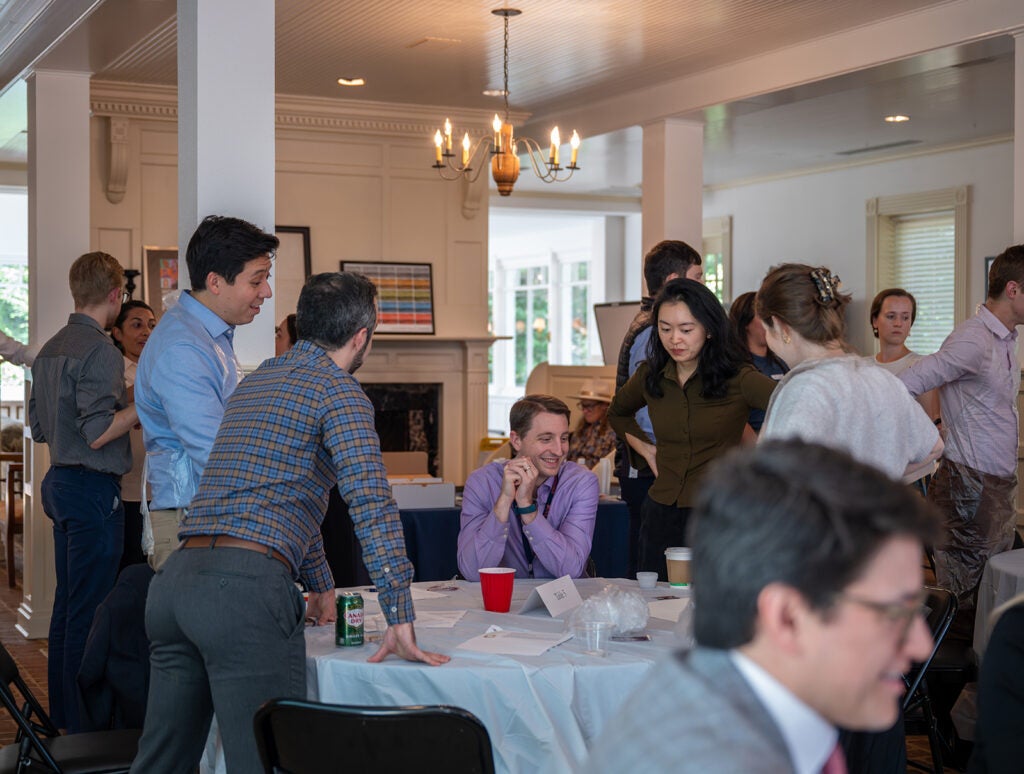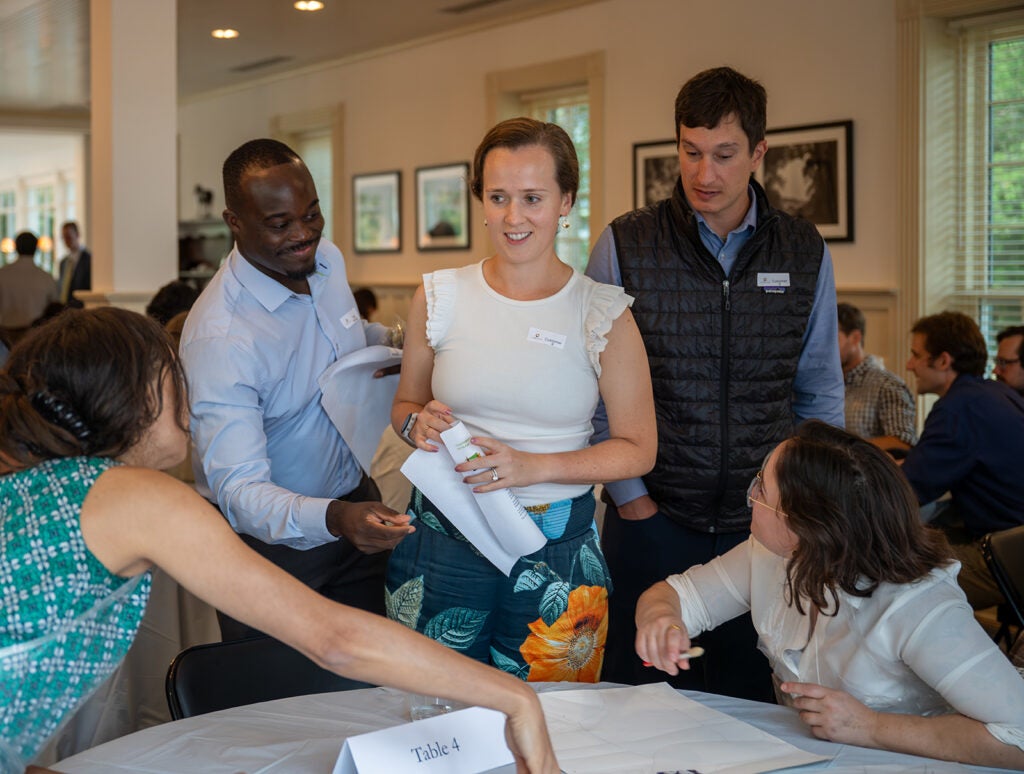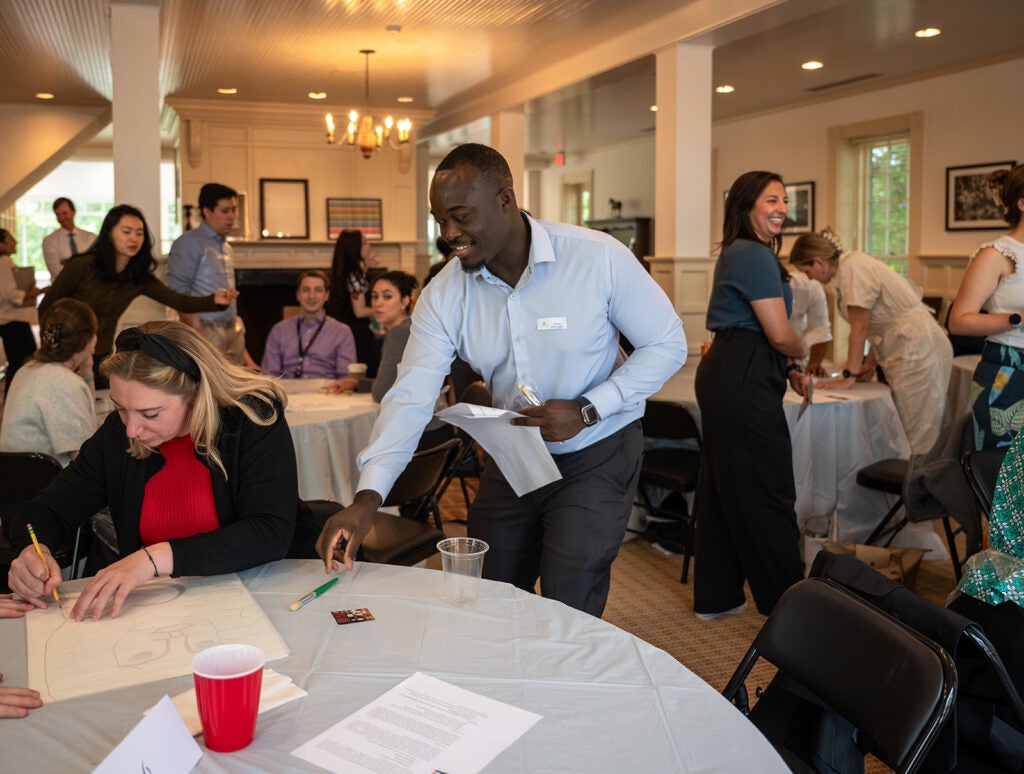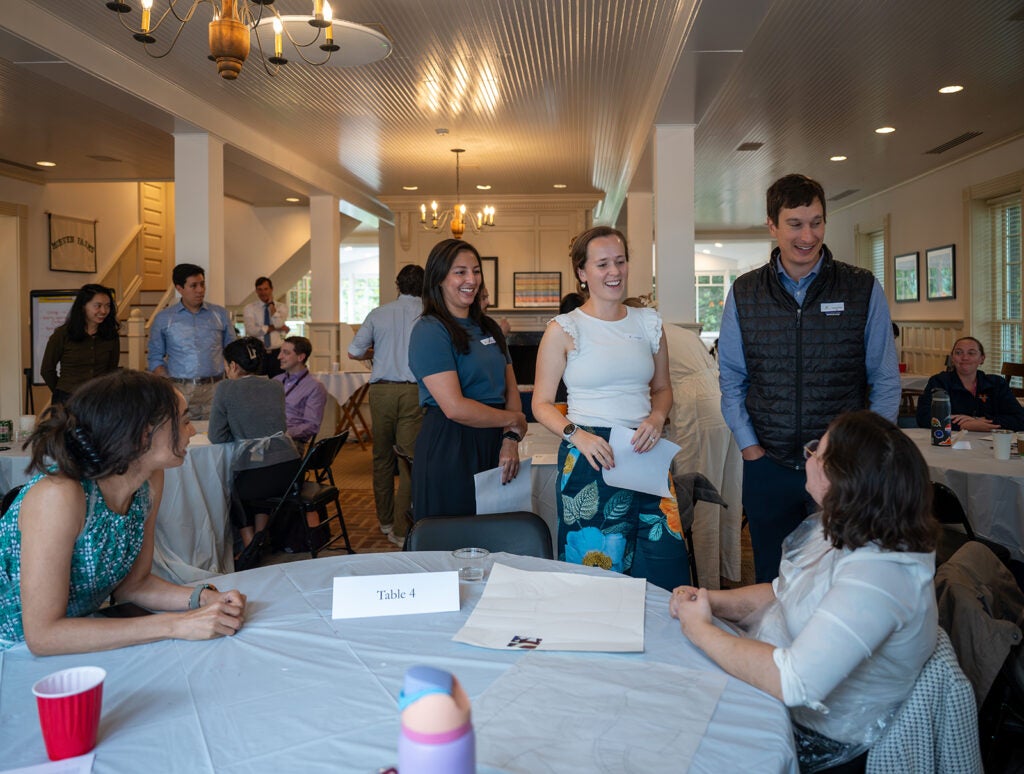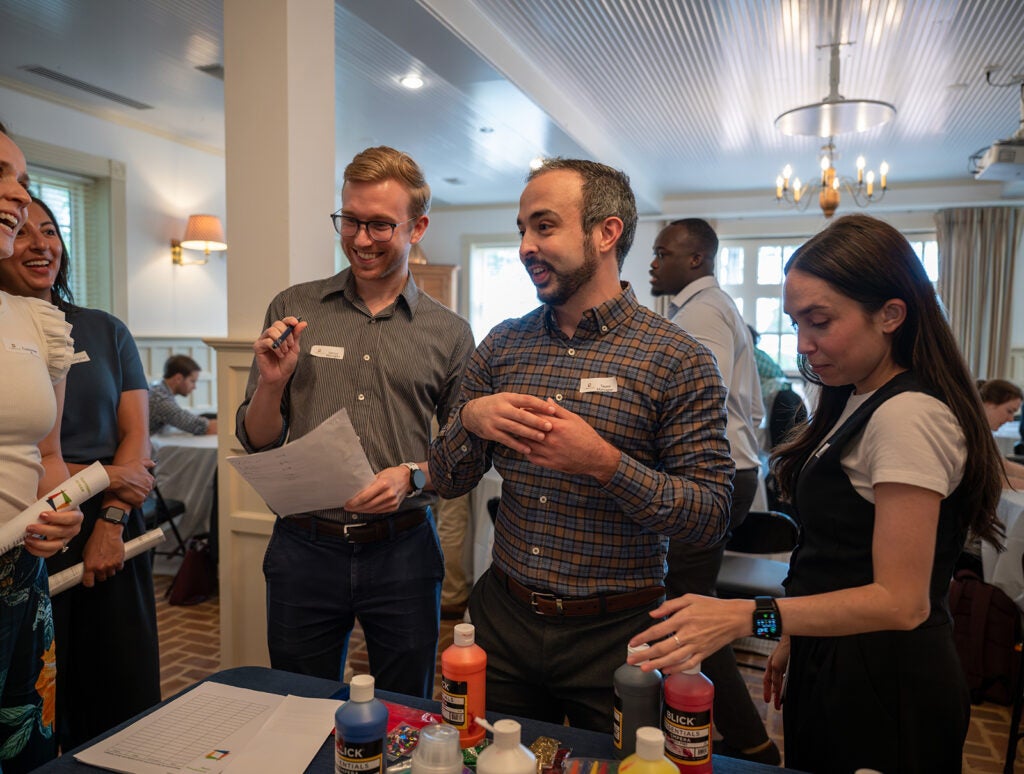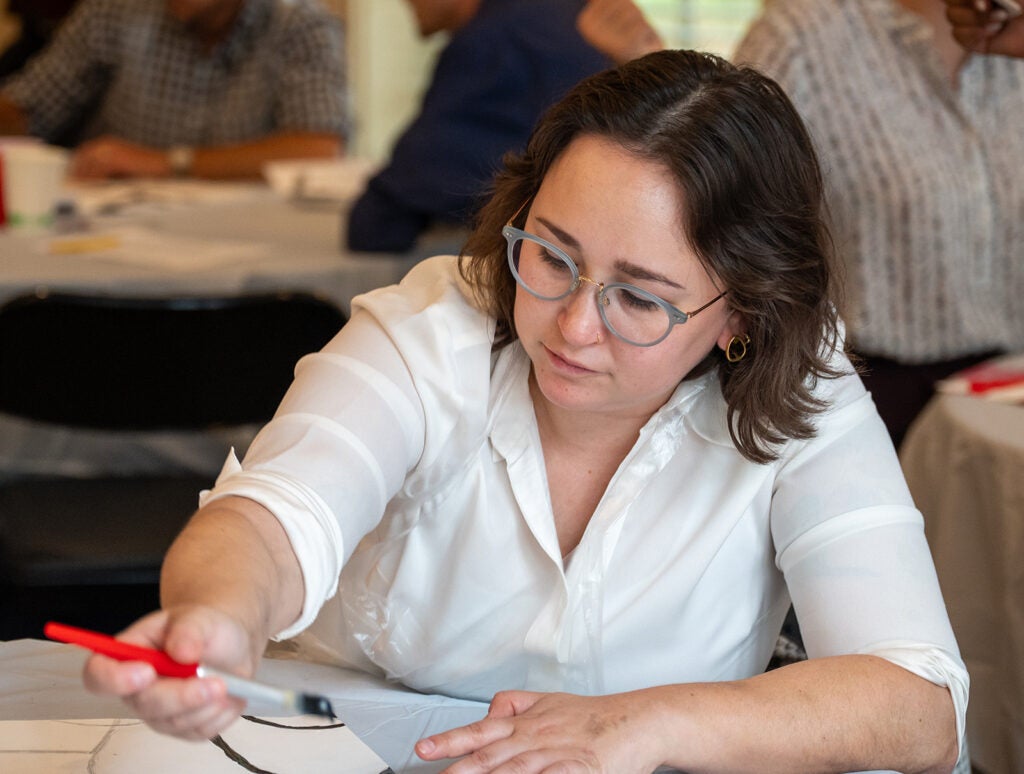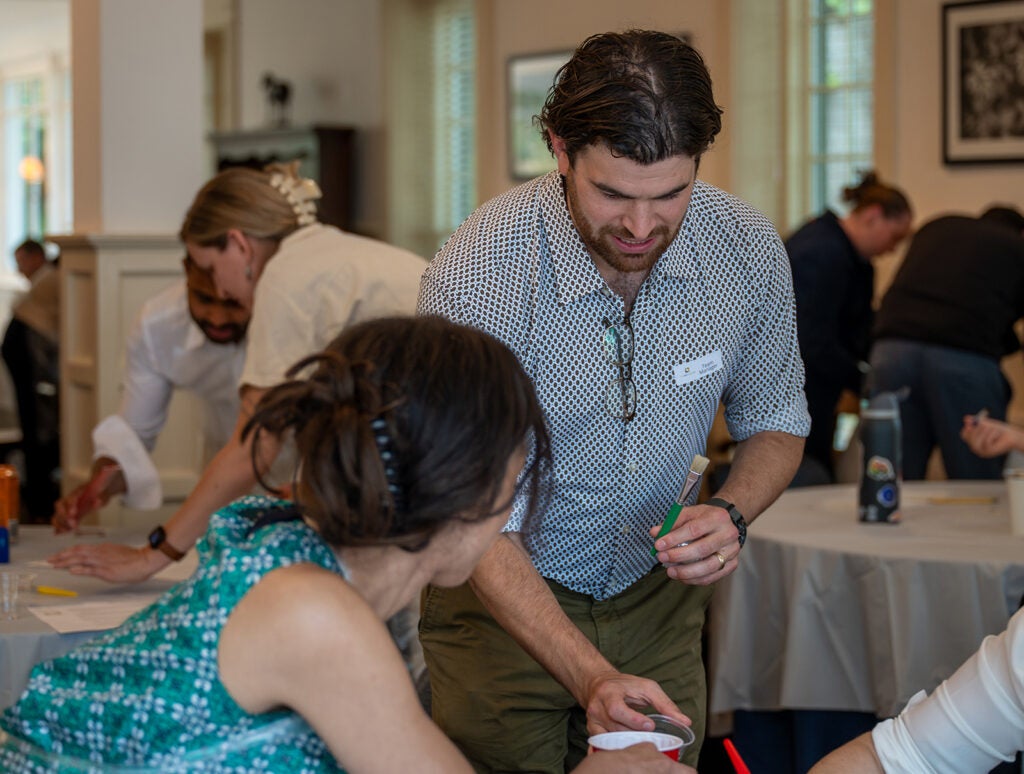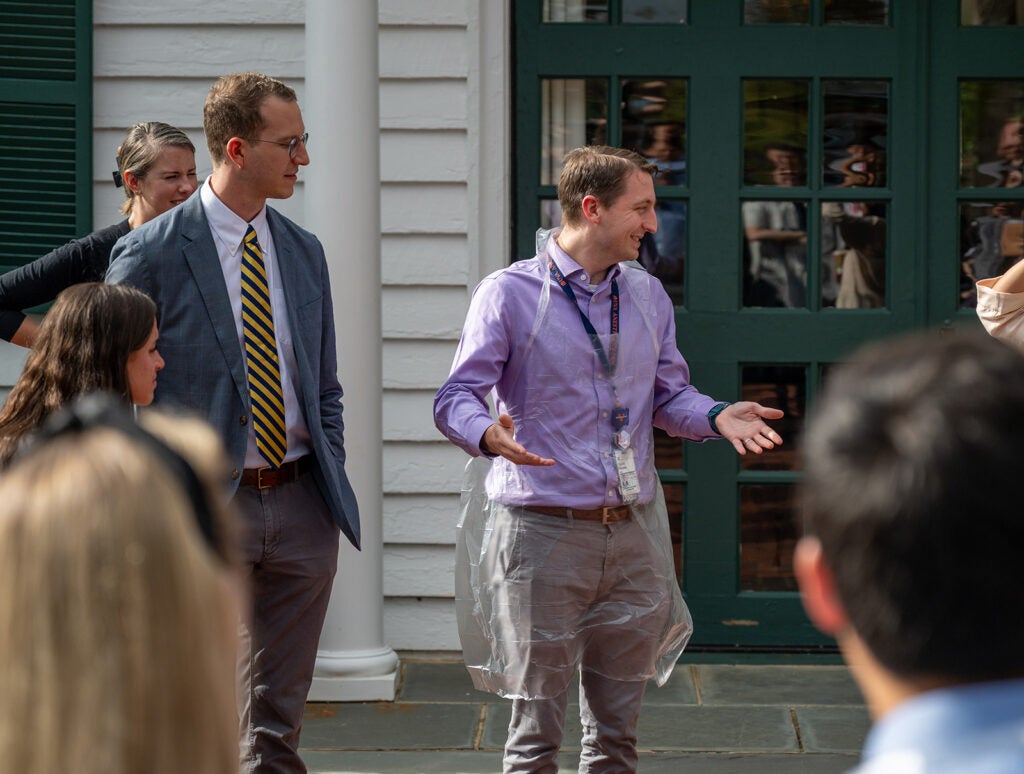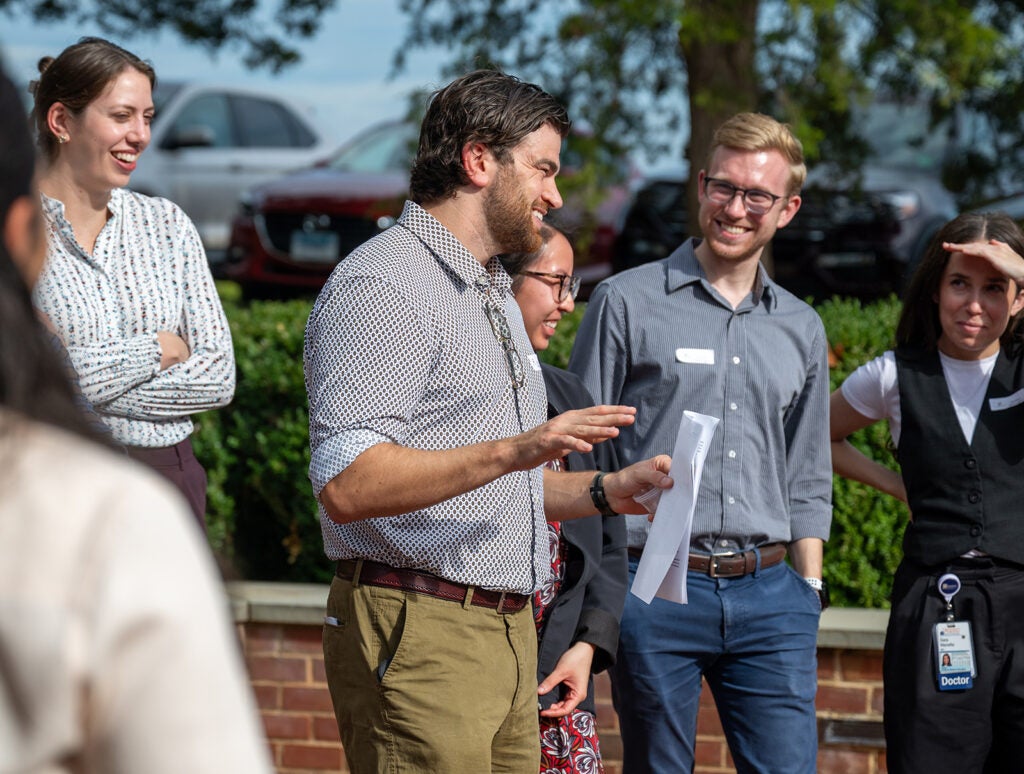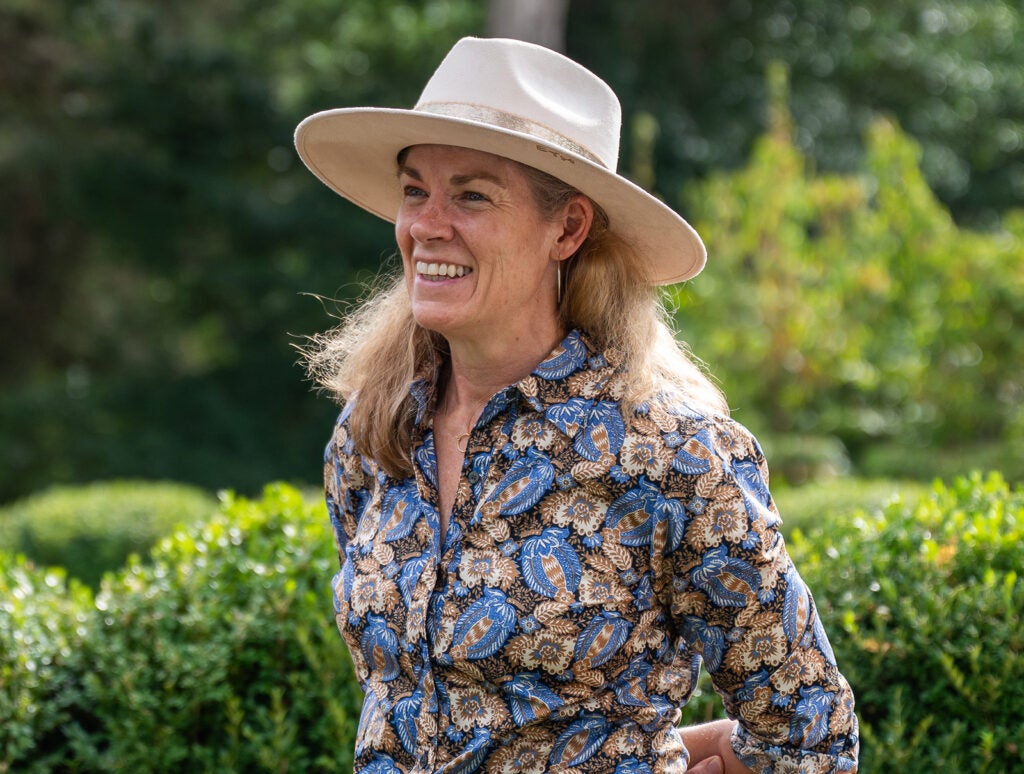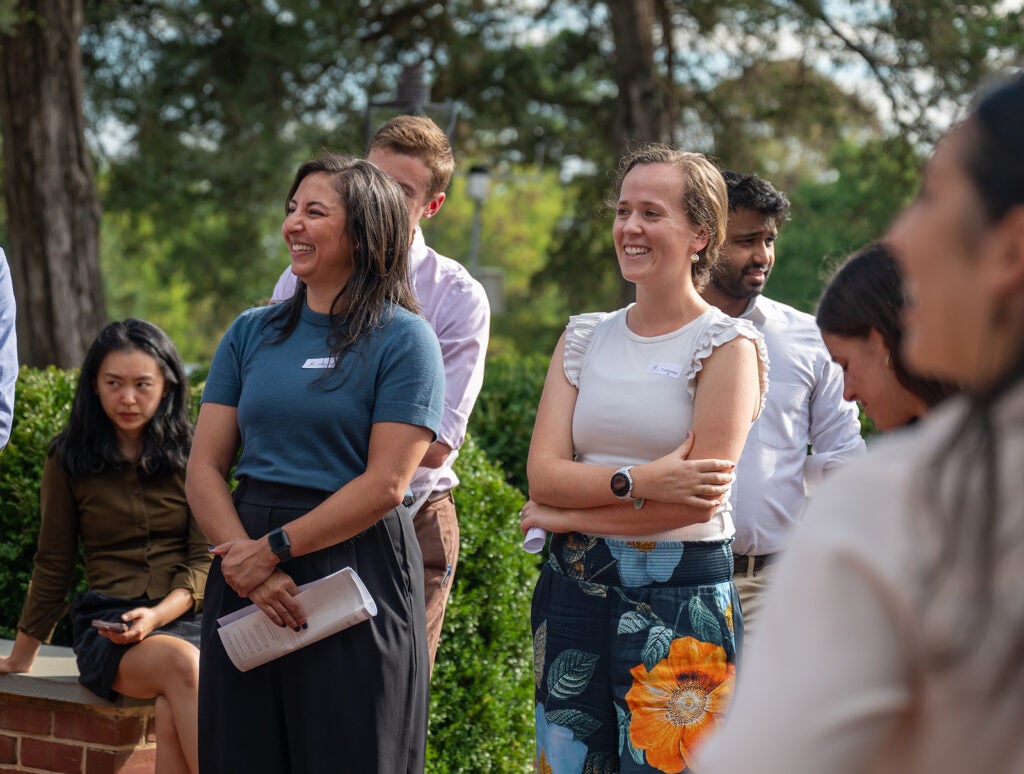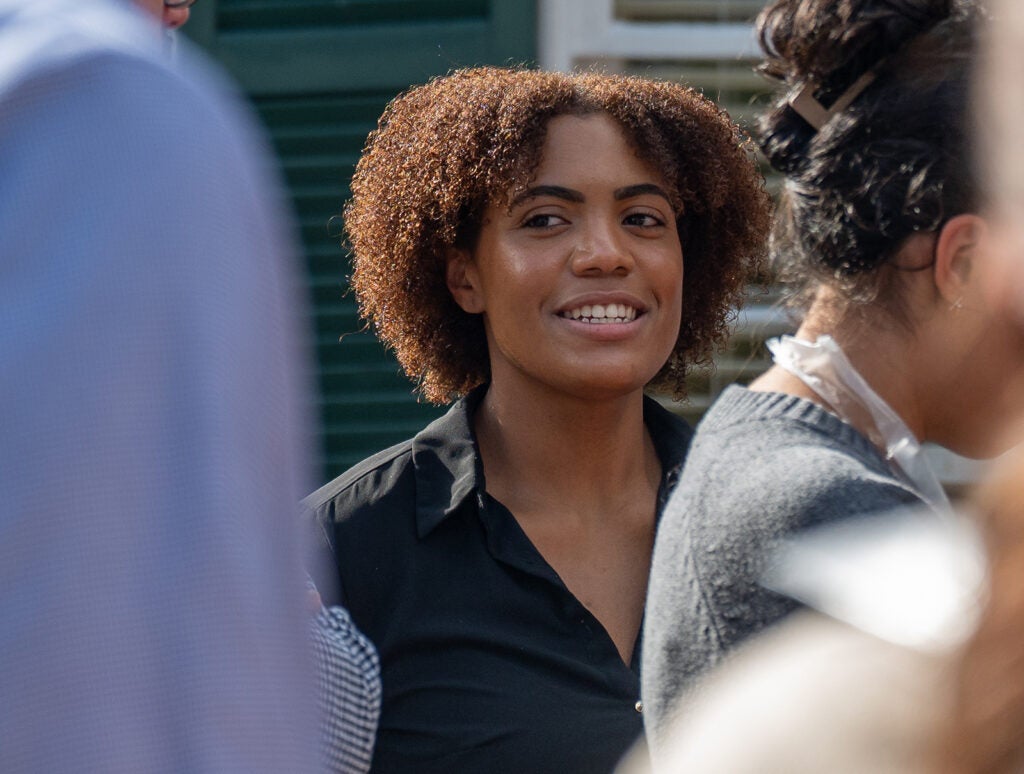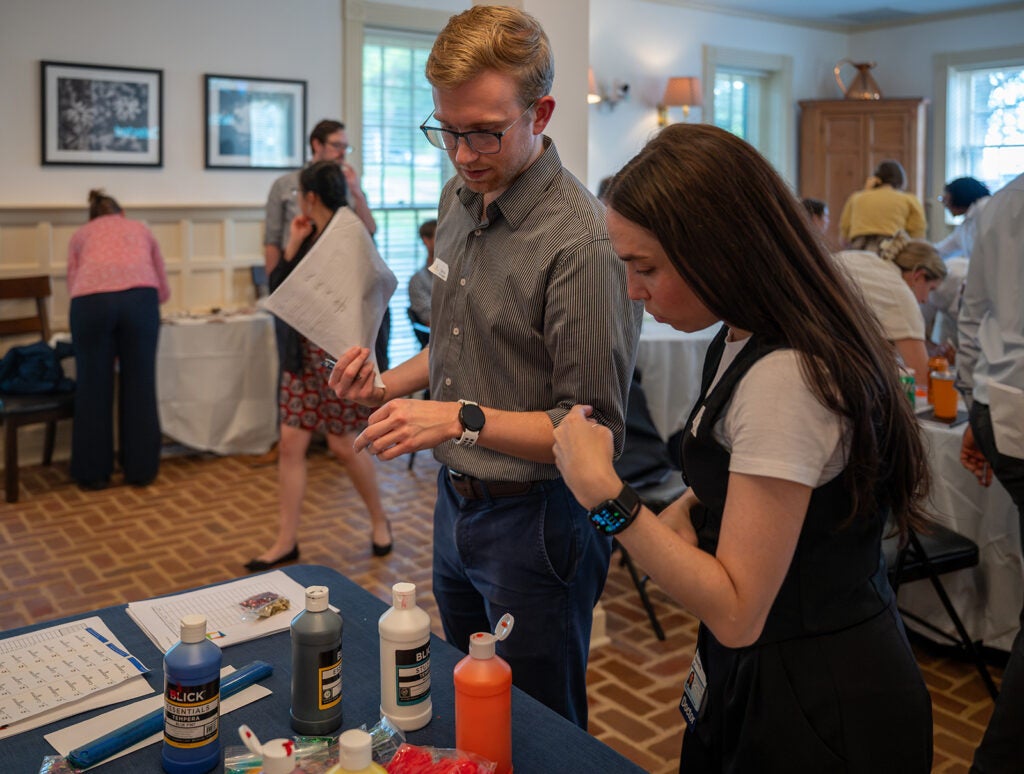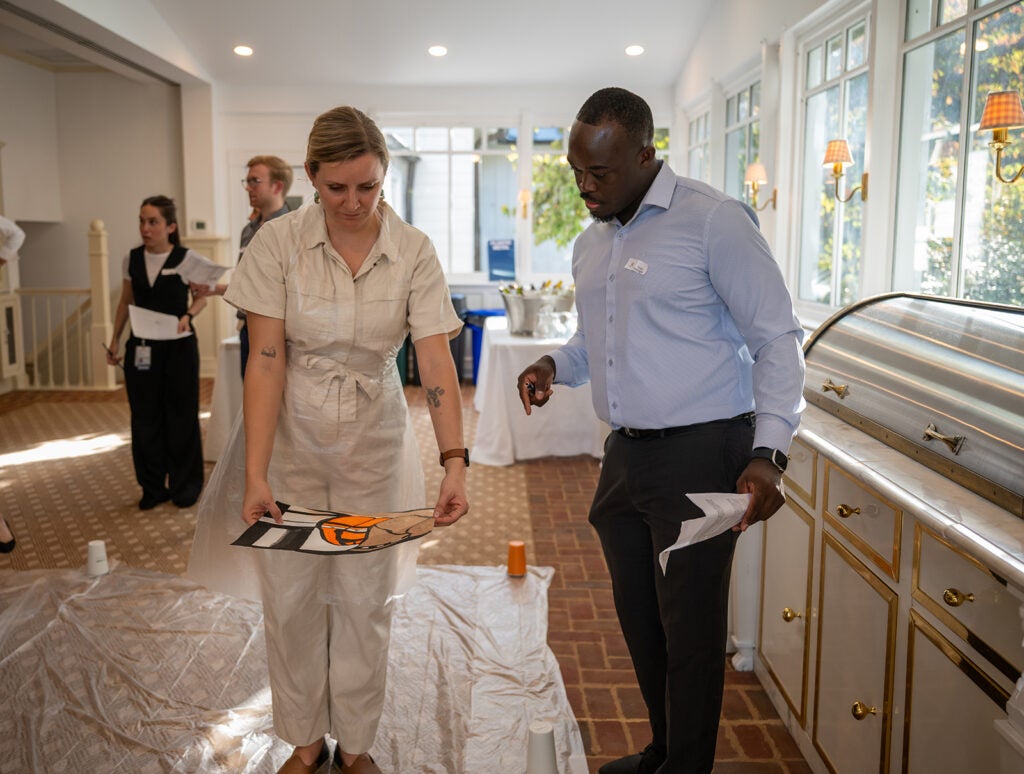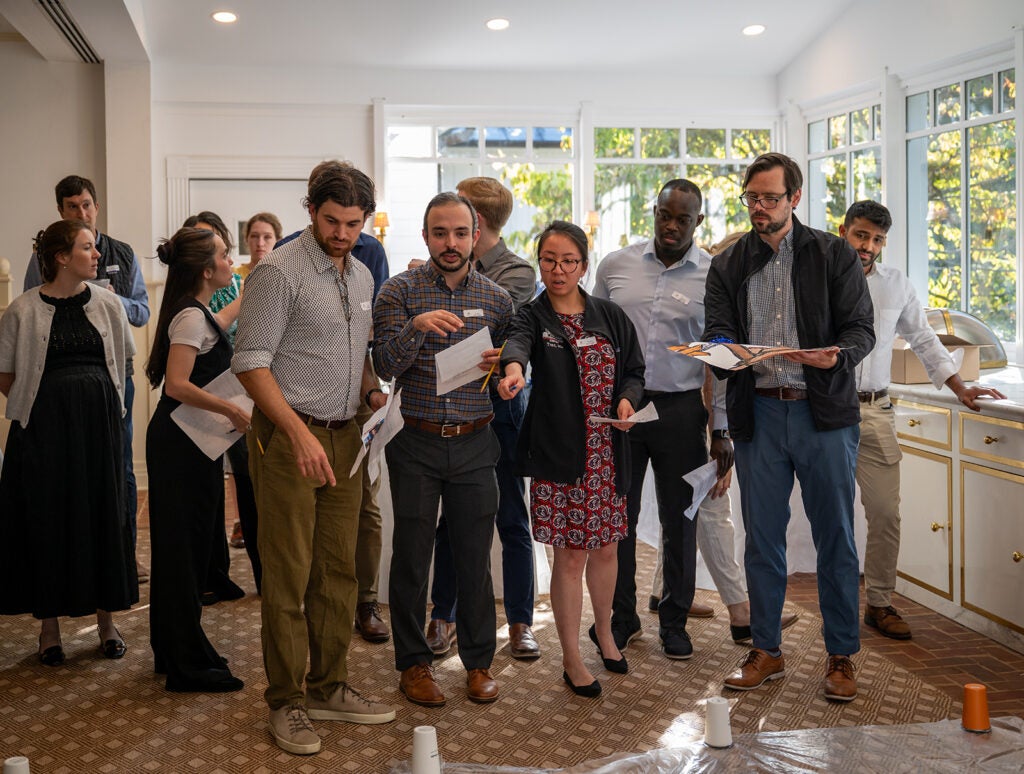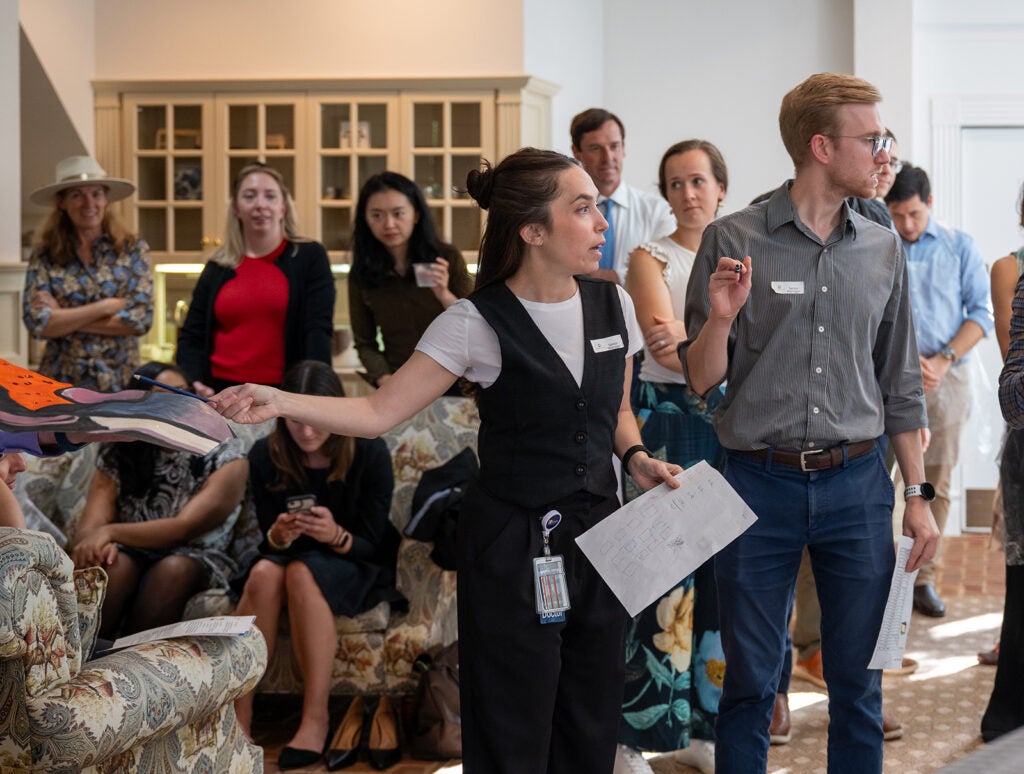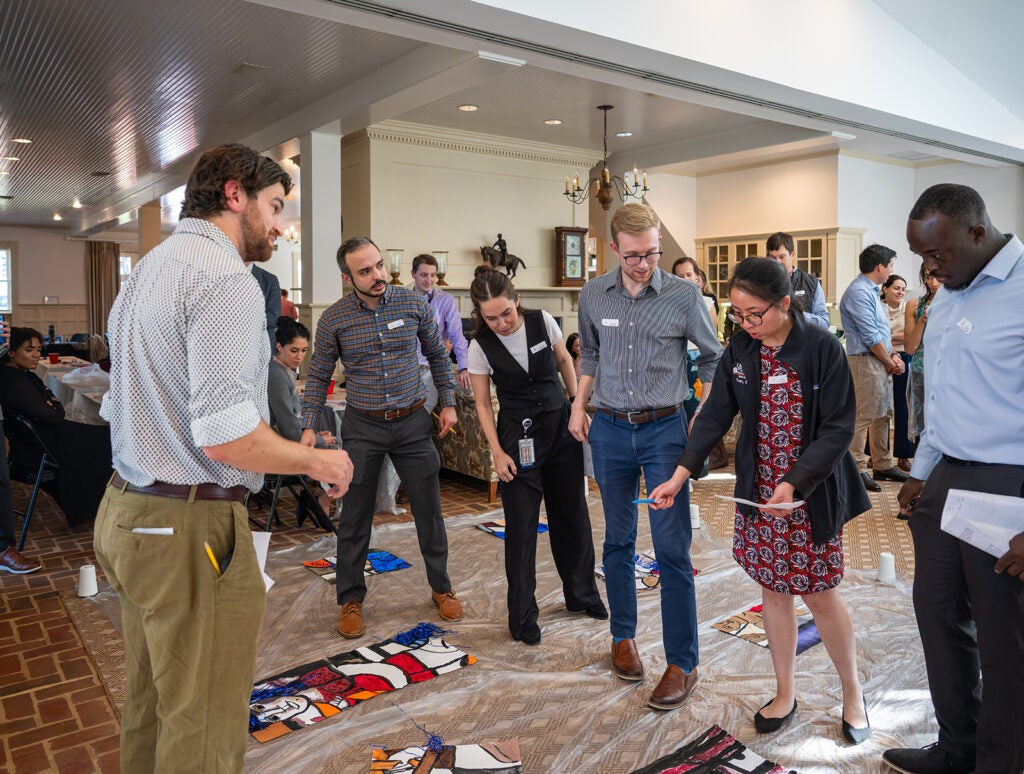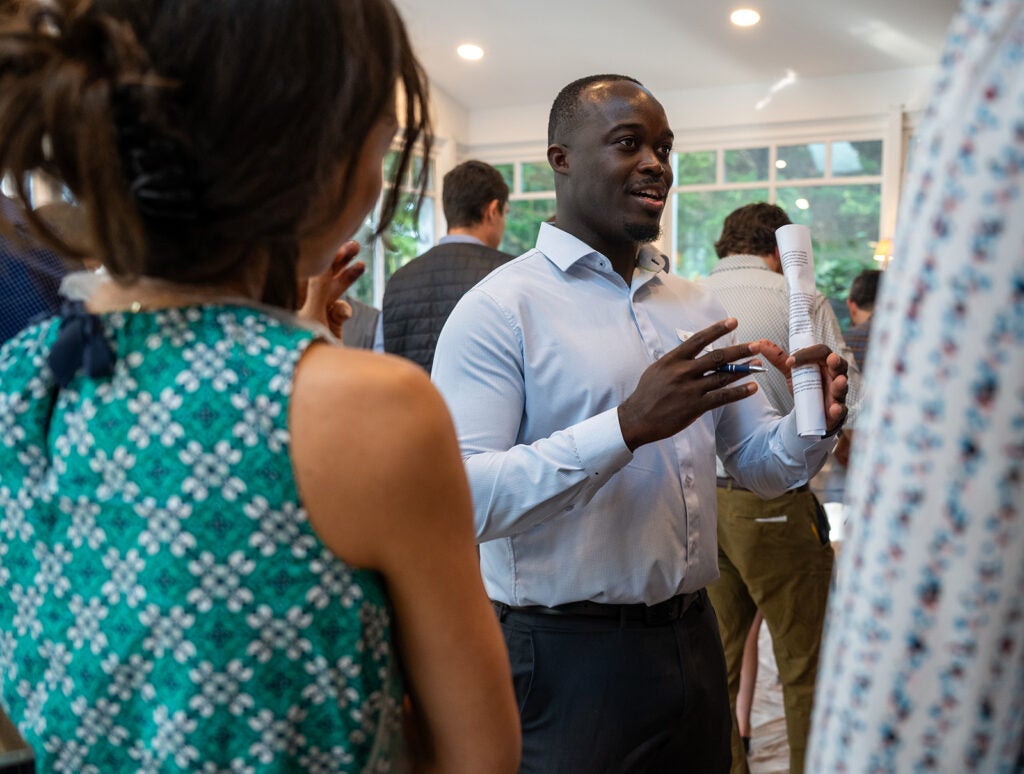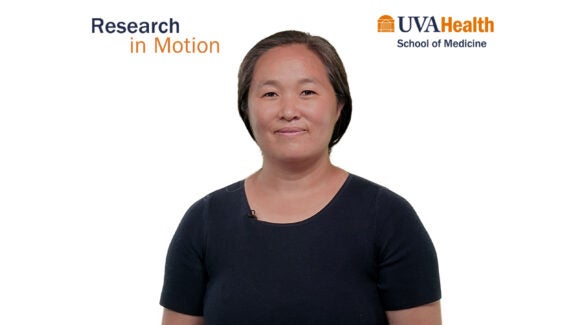
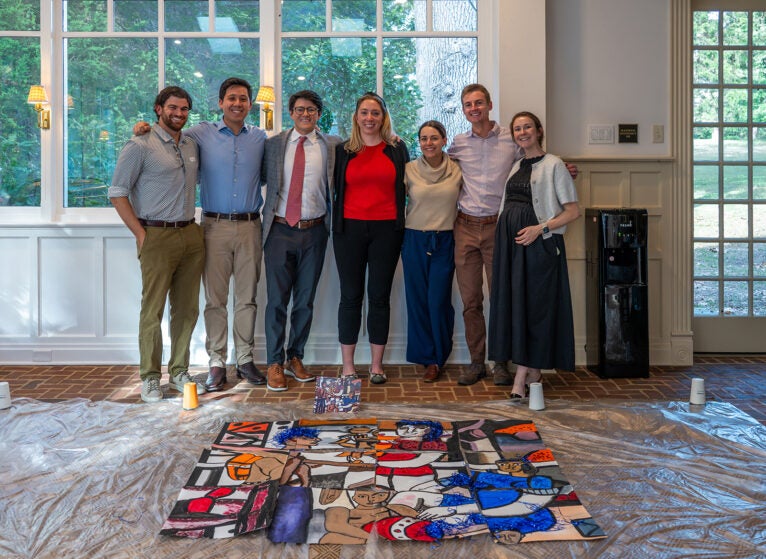
UVA Health Leadership Institute Launches Training Tailored for Residents and Fellows
This September, the UVA Health Leadership Institute (HLI) launched a new training program designed especially for upper-level residents and fellows. Building on the success of the training for team members, which began in 2023, this eight-month program is designed to equip trainees with leadership skills that extend beyond clinical care, with a focus on effective communication, team collaboration, and understanding the business aspects of healthcare.
We spoke with Strategy Analyst Jada Smith, MPH, and Eliza Holland, MD, Chair of the Residents and Fellows Cohort, about how this new leadership training program came about and why they feel it’s going to be an asset for residents and fellows. We also heard from two participants — Ansley Scott, MD, MPH, MS, a fifth-year surgical pathology fellow and Charlie Engh, MD, a fourth-year orthopedic surgery resident — who shared their motivators for joining the program.
How did the leadership training program for residents and fellows originate?
Smith: HLI launched in 2023 with the mission of developing future leaders from within UVA Health by providing leadership education accessible to all team members. Since then, we have had three successful cohorts, with the fourth beginning in October, and we have had over 100 team members complete the program. Over the past year, we've been exploring ways to expand and tailor our content to support other groups at UVA Health who are at different stages of their careers and leadership journeys, particularly residents and trainees. Our goal is to offer them training that aligns with the specific skills they'll need to advance and take on leadership roles in both academic and community healthcare settings.
Dr. Holland: Dr. [Michael] Valentine and I were both interested in starting a program for trainees, so we ended up working together to adapt the existing team member curriculum to create an introductory course for our residents and fellows.
How many residents and fellows will be part of this first cohort and how do they get selected?
Smith: We’ll have 37 members in this inaugural cohort representing 19 different training programs. Program directors nominated high-performing residents and fellows recognized as future leaders in healthcare and their communities. These nominees were then invited to apply, and their applications, which included short-answer responses, a resume, and a letter of recommendation from their program director, were reviewed by members of the UVA HLI Trainee Program Advisory Council.
Why is it important to offer leadership training at this stage of residents’ and fellows’ careers?
Dr. Holland: We’re asking them to be leaders from the day they set foot into residency. They are the head of — or a very important part of — a team taking care of patients. They're working together within their resident classes. They're teaching medical students. They're participating in quality and research projects. They're taking on more and more responsibilities as they adopt these senior leadership roles, and there isn't really any formal training for that. They don't typically learn those skills during residency. They don’t learn about the kinds of leadership styles or how to give effective feedback. There’s very little training on healthcare financing, negotiating, or bringing a group of people with disparate ideas together for a common goal.
What do you hope residents and fellows gain from participating in this program?
Dr. Holland: At the end of this program, I hope they are more confident in their own leadership style. I'd like them to have a better understanding of how the healthcare system works. I think that’s very opaque when you are a medical student, a trainee or even junior level faculty because you are so focused on just doing your job. One of the topics we’ll cover is healthcare finances, so I hope they’ll gain a better understanding of where the money comes from, where it goes, and what the different priorities are. There’s an advocacy piece as well. How do you best reach out to other people to help your patients? How can you work with people outside of your own field to move things forward?
How is the training for residents and fellows different from the program for team members?
Smith: The leadership curriculum for team members is an eight-month program running from October to May, with monthly sessions on the third Wednesday of each month, from 11 a.m. to 5 p.m. This program is open to all UVA Health System team members across all entities and roles.
The program for residents and fellows is also eight months, running from September to April, but is condensed to fit their busy clinic schedules. While the launch and graduation days are full-day sessions, the six sessions in between are held from 5 to 7:30 p.m. on the second Tuesday of each month.
Dr. Holland: These sessions will be in the evenings because we think it’ll lessen the impact on clinical care. These are people who are already working 80-hour weeks. So, we understand that carving out another two-and-a-half hours in the evening once a month is a big ask.
What are the Capstone projects that participants will complete during their training?
Dr. Holland: All trainees are senior residents and fellows who have been in the system long enough to recognize that we're not perfect and there are always ways that we can strive to be better. On the first day, we’ll ask everyone to pitch a problem they’ve identified within the healthcare system and propose a solution. The group will vote on the top projects, which will then become the focus of their work throughout the program. At graduation in April, they’ll present their findings and progress.
Smith: We’re going to split up the workgroups so not everyone from the same specialty is together. This is also something we do with our team member cohorts, and the cross-discipline nature of these groups I think has really been a highlight. People are saying that doing these projects together really opened their eyes to other areas and the resources that are available.
Who will be teaching the courses?
Dr. Holland: We've been very lucky to partner with the Darden School of Business, the McIntire School of Commerce, and the Batten School of Leadership and Public Policy. We have a lot of their faculty coming in to teach these classes, as well as leaders across the Health System and some external experts in their fields. It’s a very diverse group of facilitators and faculty that we’ll be leveraging for this program.
How do you envision the program evolving in the future?
Smith: Over the next eight months, we want to be intentional about creating opportunities for trainees to build relationships with one another and with leaders across the health system, while also laying the groundwork for a strong alumni network in the future. This year, we are going to pair every trainee with a mentor. As of now, most of those mentors are physicians who have already been through the HLI program or who are on the advisory council. Looking ahead, we envision those who remain at UVA Health, whether they are continuing their training or they've stayed on as an attending, will serve as the mentors. Over time, our goal is to create a sustainable, peer-supported leadership pipeline that not only benefits individual trainees but also strengthens the culture of leadership across UVA Health.
Dr. Holland: I think the program has the potential to be a powerful recruiting tool for UVA and their residency programs. Ultimately, it may help people feel more anchored here and more attached to this program, as they have really dug in and gotten that support and learned that they can make a difference. Maybe it will entice them to want to stay here and continue the work that they're doing.
What role will this first cohort play in shaping the program going forward?
Dr. Holland: This first group is going to have a lot of say in what programs we keep and which ones they’d like to see instead. We’re going to be very open to feedback.
Smith: As Dr. Holland said, we are really leaning into this first cohort to share their feedback and perspectives over the next eight months to help shape and improve the program for future participants. We also invite them to think about other ways to reach more residents and fellows. Maybe we can find different ways to have workshops or other bite-sized informational sessions for people who aren't in this cohort program. Leveraging their experience, getting them to share with us what they really need and what they value from the Health Leadership Institute will be great going forward.
Dr. Scott and Dr. Engh, why did you decide to participate in the HLI training program?
Dr. Scott: The main motivator to participate in this program was the sheer prospect of receiving formal training on leadership. Many of the leadership skills I have gained to date have been through experience and practice, and I often wonder if there are better tools for navigating than those I have acquired. The opportunity to participate in a longitudinal program aimed solely at fostering leadership skills was one I did not feel I could pass up, personally or professionally.
Dr. Engh: It seemed like an awesome opportunity to learn about an important topic that we rarely get formal training on despite it being part of our everyday interactions.
What are you most excited to learn or accomplish through this program?
Dr. Scott: I am most excited to learn how to leverage the differences that each person brings to a team, both in personality and work style, and to identify innovative and inclusive approaches to planning and problem solving.
Dr. Engh: Not only do I want to gain more insight into being an effective leader, but I also want to learn about different facets of what goes into healthcare leadership, including things like healthcare finance and policy.
Latest News



